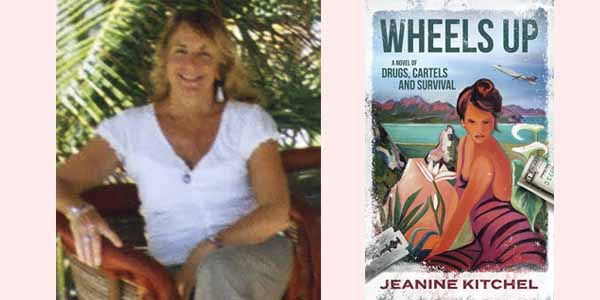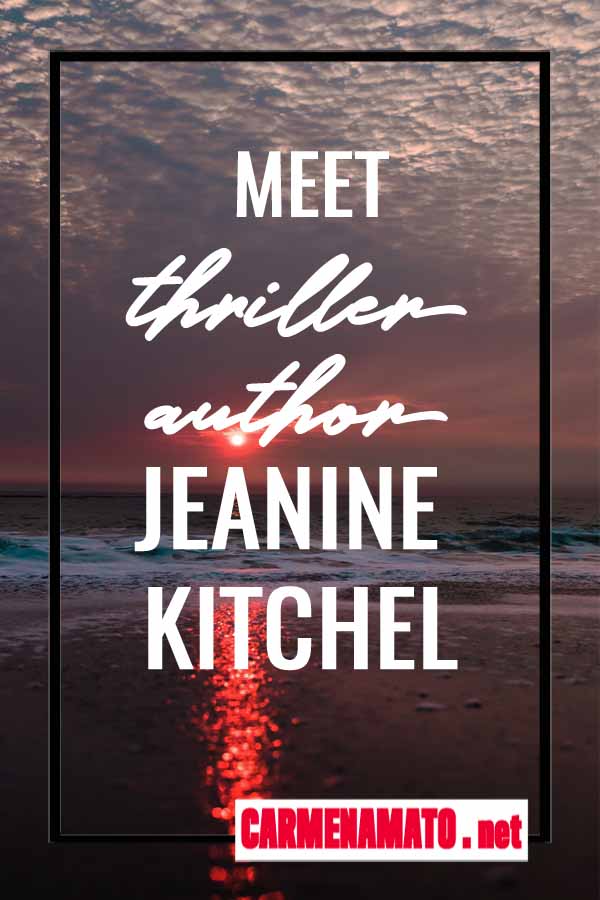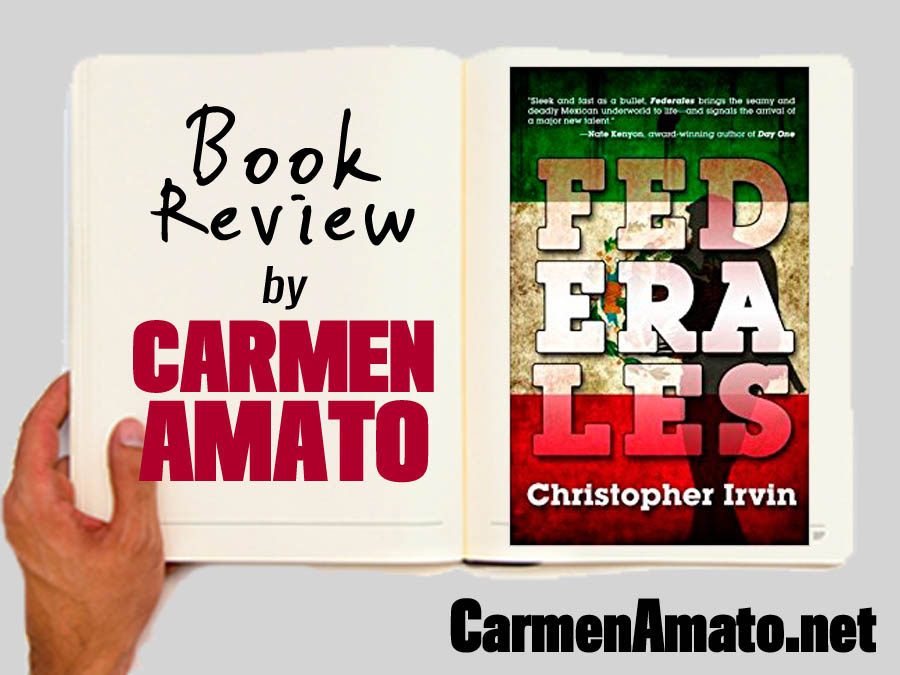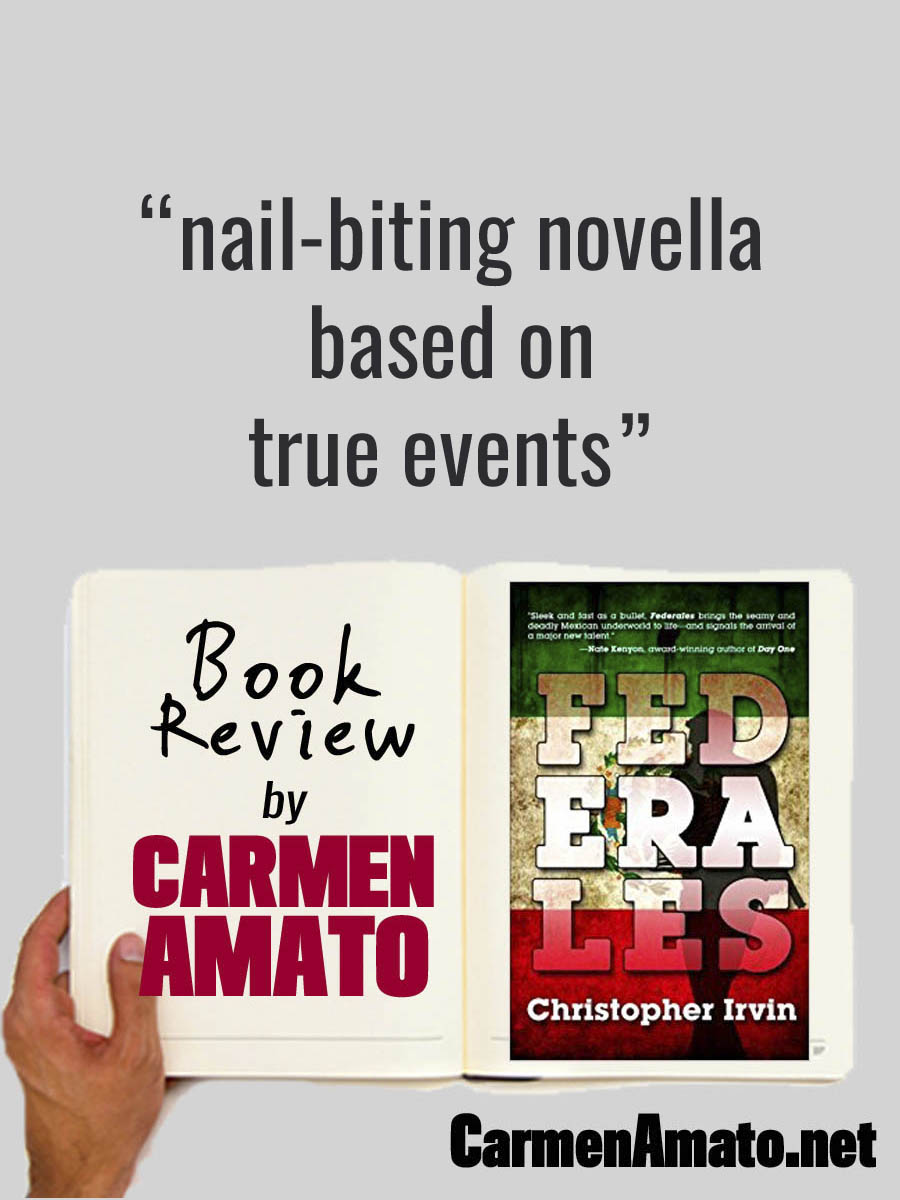
Meet WHEELS UP thriller author Jeanine Kitchel
 |
1) Carmen Amato: Jeanine, we first met as collaborators putting together THE INSIDER’S GUIDE TO THE BEST OF MEXICO and now find ourselves writing two halves of the same story set in Mexico. I write a mystery series from the point of a view of a female cop, while your (highly rated!!) novel WHEELS UP–A Novel of Drugs Cartels and Survival is the start to a new crime fiction series told from the point of view of a female crime boss.
I wonder what would happen if these two fiesty women ever met! Tell us about your background and the inspiration for WHEELS UP.
Jeanine: Hi Carmen, and thanks for the interview. It is amazing that our Latina protagonists are polar opposites. Emilia Cruz is fighting for justice in the Acapulco Police Department while Layla Navarro occupies the top spot in Mexico’s most powerful cartel because of her DNA.
I decided to write fiction, specifically about the cartels, after living in Mexico for 15 years. I fell in love with the Mexican Caribbean coast in the early 80s, long before Cancun became a household word. In 1989 right after class 5 hurricane, my husband and I bought land and built a house in a fishing village, Puerto Morelos. We rented it out like an Airbnb until 1997 when we escaped our San Francisco jobs, moved south, and founded a bookstore. Wheels Up—A Novel of Drugs, Cartels andSurvival, was inspired as I read about the creeping dominance of the Mexican cartels in local newspapers. Some events in the novel are based on fact.
2) Carmen: Your main character, Layla, inherits the leadership of a drug cartel. How did you make this character relatable? What motivates her and how does she make decisions?
Jeanine: Layla is not only a flawed protagonist, but a woman—basically persona non grata—in macho Mexico, thrown into a position of unbelievable power. She’s smart and resilient, but lacks on the job experience. Her motivation is to prove, both to herself and the cartel world, that a woman can survive in the driver’s seat, though it may be a bumpy ride. Since her uncle never planned on Layla as heir apparent, she must learn on the fly. Her early decisions are emotional, but she’s a quick study and gains her footing as she goes.
3) Carmen: How did your writing style develop and what books or authors inspire you?
Jeanine: With a degree in journalism, I wrote for newspapers and adapted to a crisp style of writing. That changed when I was approached by a publisher in my bookstore who asked me to write first person account travel articles. After publishing a memoir and a book on the Maya calendar, I decided to write fiction. Now that was a learning curve!
Books I’ve been inspired by: One Hundred Years of Solitude by Marquez, Siddhartha by Hesse, and Fear and Loathing in Las Vegas by Thompson. Joyce Carol Oates, Jack London and Margaret Atwood among others have been an inspiration.
4) Carmen: You can invite any author, living or dead, to dinner at your home. What are you serving and what will the conversation be about?
Jeanine: I’d invite Jack London. I’d serve raw oysters on the half shell as a nod to his days as an oyster pirate in San Francisco Bay along with San Francisco sourdough and clam chowder. Alcohol would flow freely. We’d talk about his South Sea adventures on his boat The Snark, his Yukon Trail gold field adventures, riding the rails in his teens that led him to socialism and his stand against social injustice. We’d discuss his love of the land, his Northern California Beauty Ranch, his horses. And how it felt to be the most celebrated author in America after the Saturday Evening Post serialized The Call of the Wild in 1903.
5) Carmen: What is your best protip. Tell us about a writing habit, technique, or philosophy that keeps your writing sharp.
Jeanine: I get up early, write a few morning pages, and then pick up from where I left off the day before. It’s not a long writing session. That comes later. I think it’s important for a writer to discover what their best writing time is. Mine is between 2 and 6 pm, but only recently discovered I have fresh thoughts first thing, so try to maximize on that. Also, a favorite quote is: “The muse only shows up if you do.”
More about Jeanine: Jeanine Kitchel’s love of Mexico led her to a fishing village on the Mexican Caribbean coast where she built a house, opened a bookstore, and began writing about Mexico, the Maya and the Yucatan. Her debut novel, Wheels Up—A Novel of Drugs, Cartels and Survival, follows a travel memoir, Where the Sky is Born: Living in the Land of the Maya. Visit her website www.jeaninekitchel.com.




